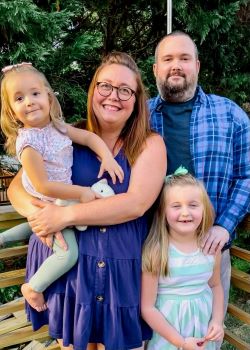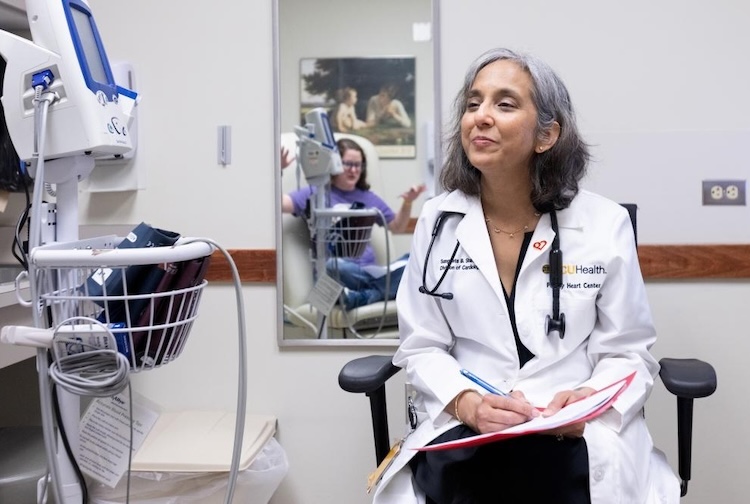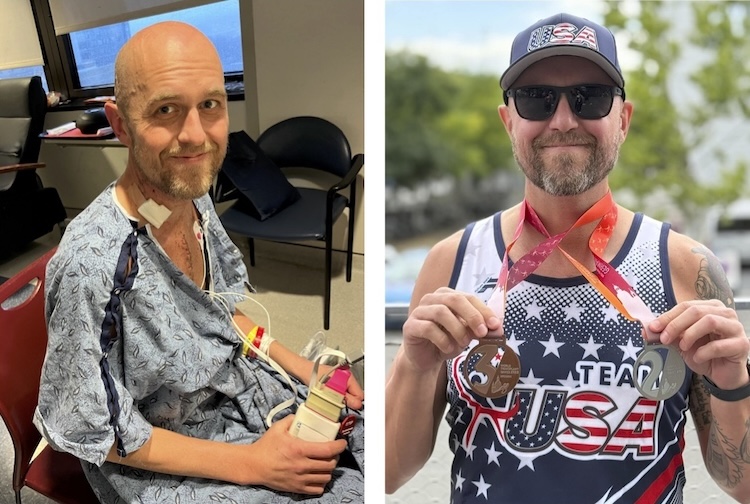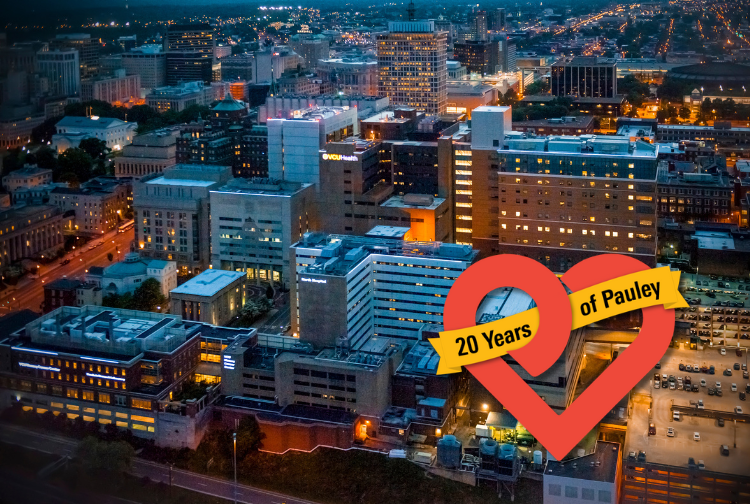Transplant rarity: Family donates loved one's heart to a friend
Directing a donor organ to someone you know turns tragedy into something positive.
October 19, 2021 Patricia Faris (left) and her daughter, Sarah (right), look out upon Lake Pontchartrain in New Orleans following their final goodbyes to their son and brother, Jon Faris.
Patricia Faris (left) and her daughter, Sarah (right), look out upon Lake Pontchartrain in New Orleans following their final goodbyes to their son and brother, Jon Faris.
By Jeff Kelley
Standing in David Slemaker's driveway, Patricia Faris held a stethoscope to David's chest. She wanted to hear her late son Jon's heart, transplanted into David nearly one year earlier.
“When I listened to his heart, it was like, 'Hello, Jon, how are you?'” Patricia recalled. “It was amazing.”
The heart was a rare gift — a directed donation —following the death of Jon Faris in a car crash in Galliano, La.
One family's story of organ donation
In Richmond, Patricia and her husband got the call in the early morning hours of May 26, 2020. Patricia and her daughter, Sarah, flew to New Orleans, where Jon was in the hospital. By then, doctors had determined that Jon was brain dead.
Sarah, a medical illustrator and tenured faculty in the VCU School of the Arts, had observed organ transplant surgery as part of her graduate training and had come to appreciate the power of donation. She understood that organ donation was a possibility with Jon.
By sheer happenstance, Sarah's friend David, 38, was diagnosed in 2017 with heart failure. In need of a heart transplant, David used a left ventricular assist device (LVAD) to keep himself going while he waited.
Idea takes shape
On their way to New Orleans, Sarah broached the subject of organ donation with her mother and asked if she would be open to a directed donation to David.
“It felt nauseating and sickening to think about it,” Sarah said. “We hadn't landed yet and seen Jon. But I wanted to give her a heads up to sit with the decision, because I knew it was coming.”
And it was. Although Jon was brain dead, his other organs were functioning properly. “All during our stay at the hospital, his heart never missed a beat,” Patricia said. “It was a perfect rhythm.”
Two days later, the women found themselves filling out the paperwork to donate Jon's organs. Sarah contacted her friend David.
 “She just out of the blue messaged me about a direct donation of her brother's heart to me. And honestly, I thought it was someone trying to play a joke,” David recalled.
“She just out of the blue messaged me about a direct donation of her brother's heart to me. And honestly, I thought it was someone trying to play a joke,” David recalled.
David called a transplant coordinator at VCU Health to ask if such a thing could really take place.
Maureen Flattery, a nurse practitioner and manager of VCU Health's heart transplant program, told him it could. “It obviously doesn't happen very often,” she stated. In fact, this would be the first for the heart transplant program.
Why directed heart donation is so rare
Directed donation is far more common in living donation. A living donor may choose to donate a kidney or a portion of their liver to someone they know. But it's rare when the donor is deceased — especially so when the organ is a heart.
Still, directed doesn't mean a match. Just because you have an organ doesn't mean it will work inside a particular individual. For heart donation, the organ's size, blood type, geographic distance from the recipient and other factors must all line up. For instance, no more than four hours can pass from the moment doctors clamp the aorta to the time the heart is transplanted.
The distance between New Orleans and Richmond was on the “very edge” of feasibility, Flattery said. A direct, private flight from New Orleans to Richmond can take two hours, 15 minutes. “Everything has to line up,” she said. “A lot of things can happen: Weather. COVID. There's a lot of things getting in the way.”
So while optimistic, Flattery told David not to get his hopes up.
But as it turned out, they were a match — the same size heart, the same blood type —and a heart in good condition from a guy about his age.
“I couldn't believe it,” David said.
Preparing for the transplant
There comes a time when a donor's family must leave their loved one. Patricia and Sarah flew back to Richmond two days after they arrived in New Orleans.
Meanwhile, Dr. Vigneshwar Kasirajan, heart transplant surgeon and VCU Health chair of the Department of Surgery, flew to New Orleans to examine Jon's heart. Even though a match, surgeons have the final say.
In New Orleans, Kasirajan cleared the heart for transplant and hopped a med-flight helicopter to the airport, taking Jon's heart with him. He then flew by private jet back to Richmond. While the surgeon was in the air, David was prepped for surgery.
Transplant recipients rarely know the identity of their donor at the time of transplant. That is not the case with directed donation.
David and Sarah texted before David's surgery May 30, and she kept abreast of his progress. Dr. Mohammed Quader led the transplant team, and David became one of 3,658 people in the United States who had heart transplants last year.
A bittersweet gift
“It's a very weird feeling to know that the heart in your body was in someone who is gone,” David said. “Knowing I have someone else's heart puts a little weight on my shoulders. I'm trying do more with my life these days than I had in the past. It's a second lease on life, you know?”
Patricia is grateful Jon's heart was given to a family friend in need — and that Jon's heart is back home in Richmond. The families met for the first time at David's home on May 27, 2021, the one-year anniversary of Jon's death.
“The fact that David has two very young daughters and a lovely wife, and that Jonathan was part of keeping that family intact — I think he would be very grateful,” Patricia said.
David sent the Faris family a copy of his post-transplant electrocardiogram — which he had made into a Christmas ornament.
“Donating the heart to David was one of the few bright, redeeming things that happened during that time,” Sarah said. “The organ donation process is structured in a way that is purely about the goodness of giving. It was good to feel like I was a part of something positive.”
Sign Up for Transplant E-Newsletter




